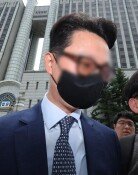[Editorial] Spoken Agreement on Goguryeo History? Mere Empty Talk
[Editorial] Spoken Agreement on Goguryeo History? Mere Empty Talk
Posted September. 17, 2004 22:08,
An authority involved with the Northeast Asia ProjectChinas campaign to distort the history of Goguryeoargued at an international conference which took place in Seoul that Goguryeo is clearly a part of Chinese history. He also reduced Sillas unification of the three kingdoms to a merging of the two kingdoms of Silla and Baekje. Its impossible not to feel deep disappointment and outrage at the chronic Sinocentrism of the Chinese government and academia, which tailor its historical sovereignty to suit its current agenda for territorial sovereignty, as well as at the narrow-minded inauthenticity of Chinese scholars, who, like parrots, simply repeat the policies and guidelines set down by their government.
The claims of the Chinese came under attack even from foreign scholars participating at the conference. Dr. Batsaihan of the Mongolian Academy of Sciences cited Chinas distortion of Mongolian history as another example of such fraudulent scholarship, pointing out that China even insists on including Genghis Khan among the Chinese. Dr. Pankaj Mohan of the University of Sydney, who is of Indian descent, added his voice in pointing out the illegitimacy of the Chinese scholars claims, reasoning, Just because Buddhas birthplace is currently part of Nepal, that doesnt make Buddha a Nepalese.
The September issue of a monthly periodical published by the Chinese Ministry of Culture also carried an article which maintained that Goguryeo was a regional power founded by one of Chinas minority races. This government-run journal is printed in both Chinese and English, and distributed to some 108 countries around the world. The publication of such an article can only mean that the Chinese government has fully embarked on its propagandistic efforts to alter Goguryeos history in the eyes of the international community.
Late last month, the Chinese government made five spoken pledges regarding its misrepresentation of Goguryeo. One such pledge specified, China expresses its understanding of Koreas interest in our related technologies on the level of both the central and regional governments, and will prevent the matter from becoming complicated by taking the necessary measures. At the time, our media and academia alike pointed out that this sort of spoken agreement could only be a temporary expedient, in either form or content. It appears that these worries have been proven true in less than a month.
Our government must bring China to account for its violation of these agreements. It must also come up with a variety of concentrated diplomatic efforts and strategies, bearing in mind that Chinas distortion of Goguryeo history is not an issue that can be corrected by merely academic conversation.







